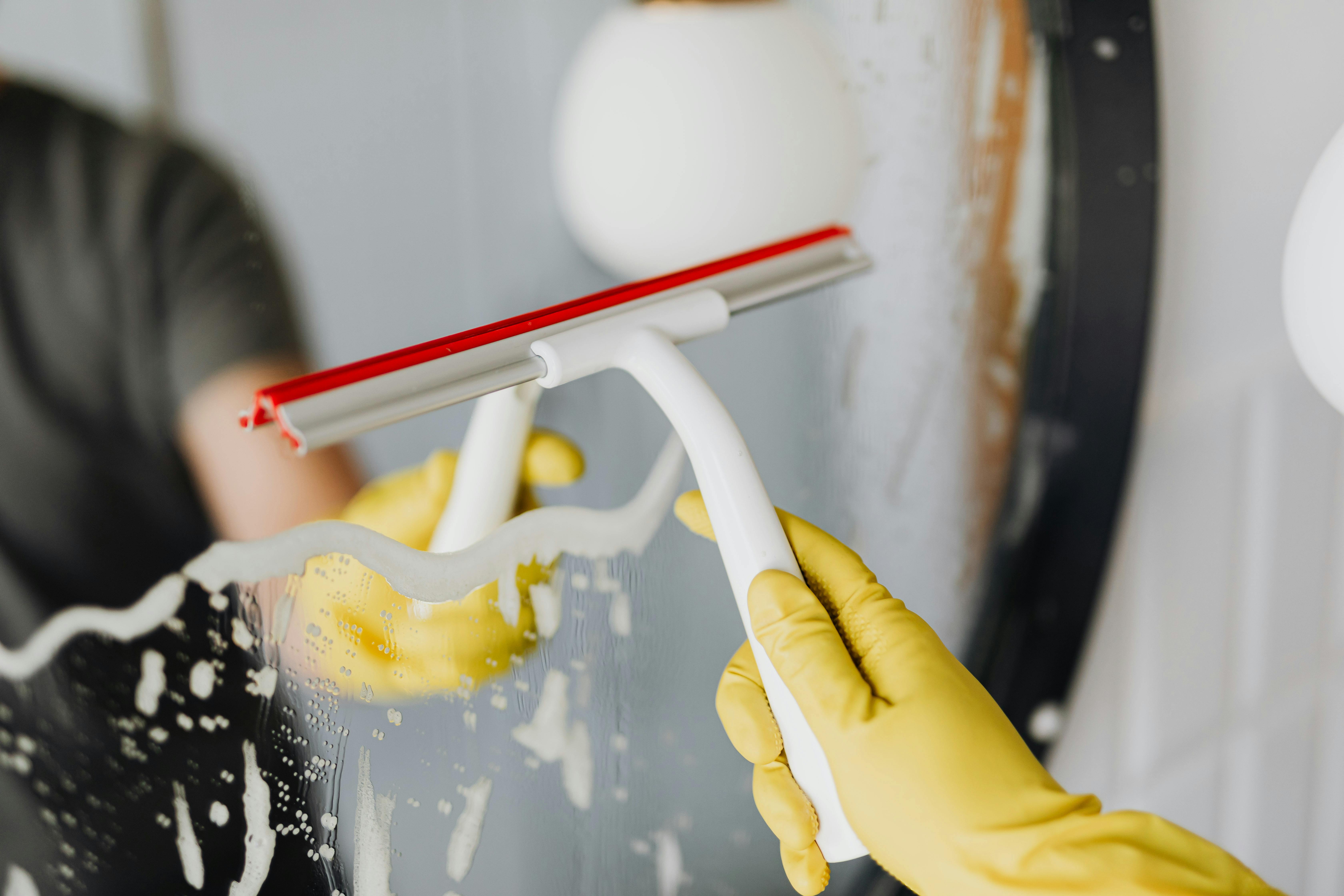Distilled water is an important product in many industries and household needs. It is used for a variety of different purposes, from industrial applications to drinking water. Distillation is a process which removes all the impurities and contaminants from water, leaving it pure and clean. The uses of distilled water are vast and varied, with applications ranging from personal use to industrial processes. This article will discuss some of the most common uses for distilled water.Distilled water is water that has been boiled into vapor and then condensed into a clean container. It is usually free of minerals and salts, making it an ideal choice for various uses around the home. Common uses for distilled water include:
1. Ironing – Distilled water is ideal for steam irons as it doesn’t contain any minerals that may leave spots or streaks on clothing.
2. Cleaning Electronics – Electronics like televisions, computers, and tablets should not be cleaned with tap water as the minerals can cause damage to the delicate components. Distilled water is a safe option for cleaning these types of electronics.
3. Car Batteries – Car batteries should be filled with distilled water to prevent corrosion and to ensure they are working at optimal performance levels.
4. Plants – Houseplants should be watered with distilled water as it helps prevent mineral buildup in soil which can cause unhealthy plant growth.
5. Humidifiers – Humidifiers require clean, mineral-free water in order to function properly and work most efficiently when filled with distilled water.
Benefits of Drinking Distilled Water
Drinking distilled water has many health benefits. Distillation is a process in which water is heated to boiling temperatures, and then the steam is collected and cooled, leaving behind impurities and minerals. The resulting water is often referred to as “distilled water”. This type of water is free from contaminants and bacteria, making it a much healthier option than regular tap water. Here are some of the main benefits of drinking distilled water:
The first benefit of drinking distilled water is that it is free from contaminants. Unlike regular tap water, which can contain trace amounts of chemicals, heavy metals, and other contaminants, distilled water has been purified to remove these impurities. This makes it a much safer option for drinking and cooking.
Another benefit of drinking distilled water is that it can help improve your health by removing toxins from your body. When contaminants are removed from the body through regular consumption of distilled water, you can reduce your risk for certain diseases such as cancer and heart disease.
Finally, drinking distilled water can also help improve digestion. This type of purified
Uses of Distilled Water for Cooking
Distilled water is a type of purified water that has been stripped of all minerals, chemicals, and other contaminants. It’s very different from regular tap water and can be used for a variety of purposes, including cooking. Distilled water is ideal for use in recipes that require a high level of purity in order to achieve the best results.
Distilled water is perfect for use in food preparation because it does not contain any impurities or additives that may affect the flavor or texture of the finished product. This makes it ideal for soups, sauces, and other dishes that require a consistent flavor profile. Distilled water can also be used to make stocks, gravies, and other dishes where clarity and lack of discoloration are desired.
In addition to cooking applications, distilled water can be used in baking as well. It’s great for making cakes, breads, muffins, and other baked goods due to its lack of impurities which can otherwise affect the texture or flavor. Distilled water can also be used to make pastries such as pies
Uses of Distilled Water for Gardening
Distilled water is a great choice for your garden, as it does not contain any minerals or impurities that could harm your plants. Using distilled water can help to avoid the build-up of salt in soil, which can cause damage to your plants. It is also beneficial to use distilled water on seedlings and young plants, as it can prevent them from becoming stunted due to mineral deposits. Additionally, distilled water works well for watering houseplants, as it will not leave residue on their leaves.
Distilled water is also useful when fertilizing your garden, as it helps to ensure that the nutrients are evenly distributed throughout the soil. When mixed with fertilizer, distilled water helps break down the chemicals in the fertilizer so that they can be more easily absorbed by plant roots. Additionally, if you are using a hydroponic system for gardening, then using distilled water will help to prevent clogging and ensure that your plants are getting all the nutrients they need.
Finally, using distilled water when irrigating your garden can help protect against disease and pests. Since there are no minerals or impurities
Uses of Distilled Water for Cleaning
Distilled water is a great cleaning tool for a variety of applications. It is free from minerals, chemicals and other impurities, which makes it an ideal choice for cleaning. Distilled water can be used to clean windows, mirrors, bathroom fixtures, floors, tile grout and even jewelry. It can also be used to make a cleaning solution that is safe to use on delicate materials such as leather and fabric. Here are some of the ways you can use distilled water for cleaning:
1. Window and Mirror Cleaning – Distilled water does a great job at removing dirt and residue from windows and mirrors. To clean windows or mirrors with distilled water, fill a spray bottle with the water and spray it onto the surface you want to clean. Then use a lint-free cloth or paper towel to wipe away any dirt or residue. Repeat this process until the window or mirror is sparkling clean.
2. Floors – Distilled water can also be used to mop floors in order to remove dirt and residue from them without leaving streaks or spots behind

Uses of Distilled Water in Car Engines
Distilled water is an important component when it comes to using car engines. It helps to keep the engine clean and efficient by preventing buildup of corrosive elements, rust, and other contaminants. Additionally, it also helps to ensure that the engine’s coolant system is functioning properly. This is because distilled water has a much lower mineral content than regular tap water, which can cause build up over time. In order to ensure optimal performance from a car’s engine, it is important to use only distilled water in the cooling system.
Distilled water is also preferred for topping off an engine after maintenance or repair work has been done. This ensures that all of the parts are getting the same amount of fluid as well as preventing any build up from occurring. Additionally, it helps to prevent any additional damage from occurring due to contamination or mineral build up in the parts themselves or in hoses and gaskets.
Finally, distilled water can be used when flushing out a car’s cooling system. This helps to remove any sediment or buildup that may have
Uses of Distilled Water in Aquariums and Ponds
Distilled water is a type of water that has been purified through a process known as distillation. It is often used in aquariums and ponds to help maintain the health of fish and other aquatic life. Distilled water has several advantages over regular tap water, including the fact that it does not contain any chemicals or minerals that could be harmful to fish and other aquatic creatures. Additionally, it can help to reduce algae growth in aquariums and ponds, as well as reduce the build-up of unwanted minerals.
When using distilled water in an aquarium or pond, it is important to ensure that the pH level is maintained at an appropriate level for the particular species of fish or aquatic life present. Regular testing of pH levels should be done to ensure that they remain within an acceptable range for the aquatic environment. Additionally, distilled water should be aerated before introducing it into a tank or pond. This helps to ensure that all dissolved gases are removed from the water, creating a more stable environment for the inhabitants.
In addition to its use in aquariums and ponds,
Uses of Distilled Water in Heating and Cooling Systems
Distilled water is becoming increasingly popular as a potential solution for heating and cooling systems. It is widely used to prevent the buildup of mineral deposits, scale, and corrosion in these systems. Distilled water has many advantages over other types of water, such as being free from chemicals and other contaminants that can cause damage to your system. Additionally, it helps reduce energy costs by avoiding the need for frequent maintenance and repairs.
The use of distilled water in heating and cooling systems allows for more efficient operation and better performance. It does not contain any minerals that can clog up pipes or lead to corrosion over time. This makes it an ideal choice for systems that require a higher level of purity, such as those used in medical facilities or industrial processes. Additionally, distilled water does not require any additional chemicals or treatments before being used in these systems.
Distilled water is also beneficial when it comes to maintaining the cleanliness of a system’s internal components. Since it lacks minerals or other substances that can create buildup on parts like coils and filters, the need for frequent cleaning or replacement is greatly reduced.

Conclusion
Distilled water is an essential resource for many industries and households. Its uses range from medical, industrial, and household applications, making it a valuable commodity for both businesses and individuals. Its ability to be purified easily makes it ideal for use in commercial settings, while its low mineral content makes it safe for drinking. Distilled water can also be used to create concentrated solutions, like electrolyte drinks, as well as steam-distilled essential oils. Overall, distilled water is a versatile and important resource that plays an integral role in everyday life.
In conclusion, distilled water has numerous uses that make it invaluable in a variety of settings. It can be used for medical purposes, industrial processes, and household needs. Furthermore, its purification process makes it suitable for creating concentrated solutions and steam-distilled essential oils. Ultimately, distilled water is an invaluable resource that should not be overlooked or taken lightly.

